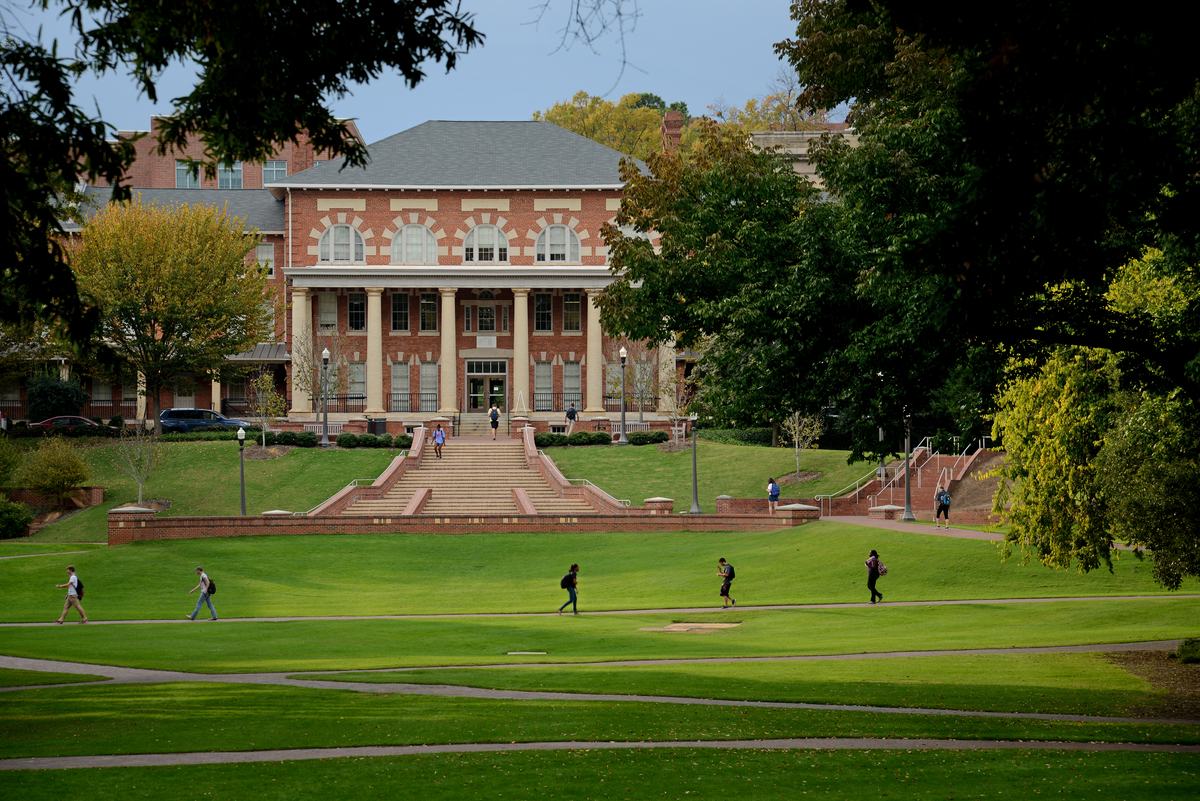Counselor Education Doctoral Student Awarded a $16,000 Research Grant

Aisha Al-Qimlass, a doctoral candidate in counselor education, recently received a $16,000 grant from the Kuwait Foundation for the Advancement of Sciences. The grant will help fund Aisha’s dissertation research, “Islamic Feminism and the Career Development of Kuwaiti Women.“ We asked Aisha to tell us more about her research and her experiences at NC State.
Tell us more about your project, “Islamic Feminism and the Career Development of Kuwaiti Women.” What piqued your interest in this topic?
I was taking an inter-institutional course at Duke, in their Asian and Middle Eastern Studies Department, and came across the term “Islamic Feminism.” Even growing up in a Muslim country, I was not familiar with this term or type of feminism in the least. As I delved more into it, with the help of my NC State advisor and instructors at Duke, I found that it was something that I was extremely interested in and felt a connection to. Prior to this discovery, I was interested in Kuwait (the country I am from and grew up in), and the way that the society there has developed. I was particularly interested in how a traditional culture can incorporate modern societal elements, values, etc. without losing their identity. Islamic Feminism helped to crystalize this interest because I recognized that studying women’s gender identity development would be a good way of taking a deeper look at the mix between modern and traditional elements of a culture and society. From there, I also determined that women’s career development was a more tangible way to study gender identity. Overall, my research aims to explore Kuwaiti women’s career development, as a function of their gender identity.
How does this research project relate to your studies in counselor education?

Career development and education is an easy and natural way for individuals to seek counseling services, in a non-threatening manner. Even in my clinical practice, issues related to career tend to materialize in sessions that may have originally been focused on anxiety, depression, etc. Furthermore, being a counselor educator means staying current with various counseling trends. One such trend that I am passionate about is the globalization of counseling. Within the context of this globalization, my research project will deduce whether career theories developed in a Western context can be applied to a non-Western community.
Tell us about the grant you received in April. How has your research progressed with the additional benefits of the grant?
The grant I applied for and received is through the Kuwait Foundation for the Advancement of Sciences. This foundation sponsors research related to science, technology and education to build and promote a knowledge-based economy in Kuwait. With their support, I will be able to utilize services (e.g. software, translation, etc.) that will bolster the rigidity of my research. Additionally, I will be able to travel to Kuwait and conduct my research in a face-to-face environment.
Why is active participation in research important for students pursuing degrees in education?
As educators, is it our responsibility to stay current on various issues and topics that are being studied and advanced. More importantly however, it is important for educators to understand research and apply it to their real world. In this way, active participation of students in research allows for a hands-on approach to becoming familiar with all the components of a research project, in a way that makes us more confident in our abilities to have opinions on and critique published research in our field.
Why did you decide to pursue a doctoral degree at NC State’s College of Education?
More than anything else, I knew that I wanted to do more than what a master’s level clinical degree would allow me to do. As my time in the program has progressed, I found that I am more and more confident in my decision to seek a doctoral degree because it is allowing me to become more involved in more macro-level avenues for change, advocacy, and social justice.
Learn more about getting a doctoral degree in counseling & counselor education at NC State.
- Categories:


